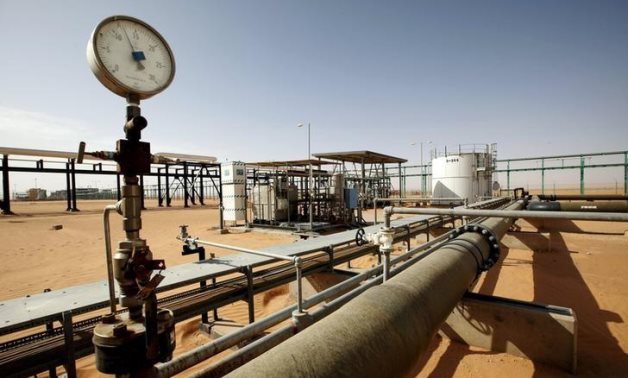
FILE PHOTO: A general view of the El Sharara oilfield, Libya December 3, 2014. REUTERS/Ismail Zitouny/File Photo
CAIRO – 23 September 2020: The Libyan National Oil Corporation (NOC) stated on Monday that the production size over the next week is estimated at 260,000 barrels per day.
On September 28, Commander-in-Chief of the Libyan National Army (LNA) Khalifa Haftar and Deputy Chairman of the Presidential Council Ahmed Maiteeq reached a deal to resume oil production and export.
The LNA and Libyan tribes in eastern and central Libya suspended the operations of oil fields and ports on January 18 as the revenues were used by the Government of National Accord - controlling Western Libya - to fund militias protecting it and hire foreign mercenaries.
As a consequence, the Libyan National Oil Corporation (NOC) – controlled by the GNA - sustained losses worth $9.6 billion. It is noted that the revenues used to be disbursed to Libya's central bank also controlled by the GNA. The daily oil production in Libya before suspension was 1.23 million barrels.
Chairman of the Libyan High Council of State Khaled al-Meshry declared on Monday his rejection of the recent deal. The Libyan High Council of State is an advisory entity to the Presidential Council having nine members and chaired by the prime minister of the GNA, who is now Fayez al-Sarraj. The nine members include the chairman, five deputies, and five ministers.
The disagreement between Meshry and Maiteeq is not the first within the GNA, as Prime Minister Sarraj decided on September 8 to keep Minister of Interior Fathi Bash Agha in his post after he had suspended him over violations against protesters. The decision followed a meeting of the two of them
News about a shadowed dispute between the two men had been circulating. By the end of August, such conflict rose to the surface amid fears of evolving into an armed one.
That followed the declaration of a ceasefire between the Tripoli-based GNA, which is an interim non-elected government that is recognized by the United Nations, and the elected House of Representatives based in Tobruk.
The GNA said that the ceasefire should include the disarmament of Sirte and Al Jufrah, and the resumption of oil production while freezing the use of its revenues at the Central Bank of Libya until an agreement is reached. On the other hand, the House of Representatives mandated the dismantling of militias and the deportation of foreign mercenaries in order to achieve a ceasefire.
Comments
Leave a Comment